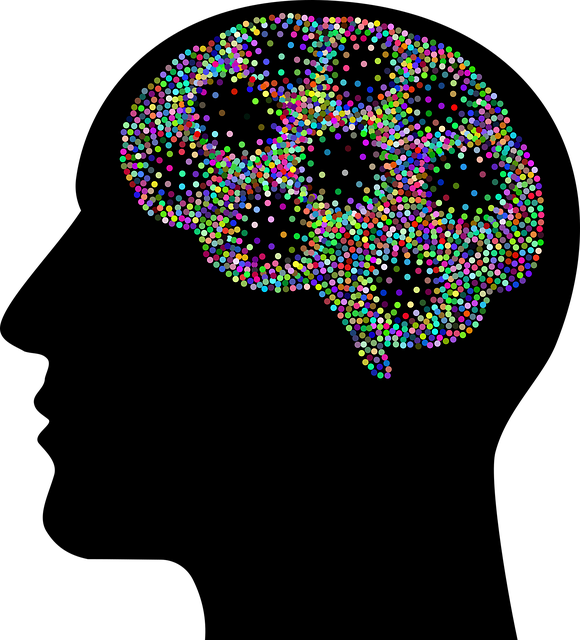Arvada Biofeedback Therapy (ABT) offers a holistic approach to mental health care, emphasizing cultural competency through mindfulness and biofeedback techniques. By addressing language barriers, cultural differences, and mental health misconceptions, ABT empowers healthcare professionals to provide tailored, inclusive care for diverse communities. Their interactive training programs, incorporating role-playing and case studies, enhance cultural understanding and communication skills. Continuous evaluation and refinement ensure the program's effectiveness in improving patient outcomes, provider well-being, and public awareness of mental health issues within diverse populations.
“In today’s diverse healthcare landscape, cultural competency is no longer an option but a necessity. This article explores the vital role of training in enhancing cross-cultural care, drawing insights from the unique approach offered by Arvada Biofeedback Therapy. We delve into identifying barriers that patients and providers face due to cultural differences, presenting effective strategies to improve communication and outcomes. Additionally, we discuss measurement techniques to evaluate and continuously improve cultural competency programs.”
- Understanding Cultural Competency in Healthcare: The Arvada Biofeedback Therapy Approach
- Identifying Barriers: Challenges Faced by Providers and Patients from Diverse Backgrounds
- Effective Training Strategies: Enhancing Cross-Cultural Communication and Care
- Measuring Impact: Evaluation and Continuous Improvement in Cultural Competency Programs
Understanding Cultural Competency in Healthcare: The Arvada Biofeedback Therapy Approach

Cultural competency in healthcare refers to the ability of providers to understand, appreciate, and interact effectively with patients from diverse cultural backgrounds. It involves recognizing and respecting cultural differences in beliefs, values, and behaviors, and tailoring care accordingly. The Arvada Biofeedback Therapy (ABT) approach emphasizes this by focusing on not just treating symptoms but also addressing the holistic well-being of individuals.
ABT integrates principles from various disciplines, including mindfulness meditation and biofeedback techniques, to facilitate a deeper understanding of cultural contexts. By promoting relaxation and self-awareness through these practices, ABT helps mental health professionals conduct thorough risk assessments (for Mental Health Professionals) that consider cultural factors. This approach not only enhances patient outcomes but also fosters a more inclusive healthcare environment, reflecting the growing importance of public awareness campaigns development in diverse communities.
Identifying Barriers: Challenges Faced by Providers and Patients from Diverse Backgrounds

In an increasingly diverse society, healthcare providers must be equipped to address the unique needs of patients from various cultural backgrounds. One significant challenge lies in overcoming barriers that arise due to differences in language, values, beliefs, and understanding of health practices. For instance, individuals from non-English speaking communities may face difficulties in communicating their symptoms or preferences, hindering effective treatment. Similarly, cultural norms regarding touch, privacy, and disclosure can vary widely, influencing patient-provider interactions. At Arvada Biofeedback Therapy, we recognize these hurdles as critical aspects to navigate for improved patient care.
Furthermore, patients from diverse backgrounds might hold misconceptions about mental health, often shaped by cultural stigmas or a lack of awareness. This can deter them from seeking necessary support, creating another layer of complexity in the healthcare journey. Enhancing mental health awareness and promoting understanding of mind over matter principles are essential components of cultural competency training. Additionally, training in social skills can foster more inclusive environments, ensuring patients feel heard and respected while encouraging open dialogue between providers and diverse patient populations.
Effective Training Strategies: Enhancing Cross-Cultural Communication and Care

Effective training strategies for healthcare provider cultural competency are essential to enhancing cross-cultural communication and care, especially in diverse communities like Arvada Biofeedback Therapy’s target market. Interactive workshops that incorporate role-playing scenarios can help professionals navigate complex cultural interactions with sensitivity and confidence. These simulations allow providers to practice active listening, cultural inquiry, and respectful communication styles tailored to various patient backgrounds.
Additionally, incorporating real-life case studies from diverse communities in healthcare policy analysis and advocacy training sessions can be invaluable. By studying mental health policy issues through a cultural lens, providers gain insights into systemic barriers and potential solutions, fostering a deeper understanding of Burnout Prevention strategies within diverse populations. This holistic approach to Healthcare Provider Cultural Competency Training equips professionals with the tools to offer more inclusive and effective care.
Measuring Impact: Evaluation and Continuous Improvement in Cultural Competency Programs

Evaluating the impact of cultural competency training is a crucial step in ensuring its effectiveness and long-term success. Healthcare provider programs like Arvada Biofeedback Therapy should implement robust evaluation methods to assess changes in attitudes, behaviors, and knowledge among participants. This process involves pre- and post-training assessments, as well as ongoing feedback from trainees and stakeholders. By measuring these aspects, the program can identify areas of improvement and tailor its strategies accordingly.
Continuous improvement is key in cultural competency training. Using data from evaluations, programs can refine their curricula, enhance delivery methods, and incorporate innovative practices to better address the diverse needs of patients and communities. For instance, integrating topics like burnout prevention strategies for healthcare providers and risk management planning for mental health professionals can further enrich the program’s impact. Additionally, promoting self-care practices among participants ensures they are equipped not only to serve their patients but also to maintain their own well-being.
Healthcare provider cultural competency training, as exemplified by the Arvada Biofeedback Therapy approach, is a vital strategy for enhancing cross-cultural communication and care. By addressing barriers faced by providers and patients from diverse backgrounds, effective training programs like these can lead to improved patient outcomes and increased access to quality healthcare. Measuring impact through evaluation and continuous improvement ensures that these initiatives remain dynamic and relevant in today’s diverse healthcare landscape. Implementing robust cultural competency training is not just a recommendation—it’s a necessary step towards fostering inclusive care for all.










